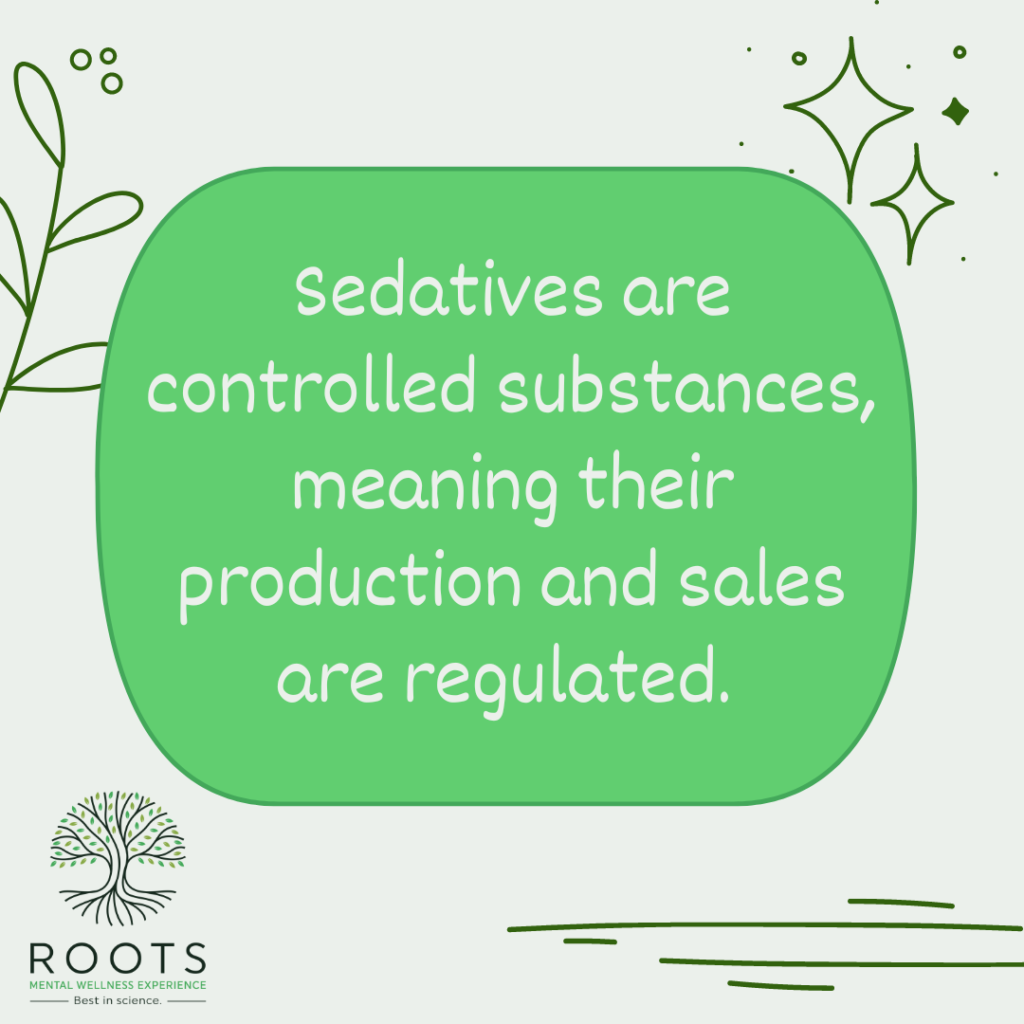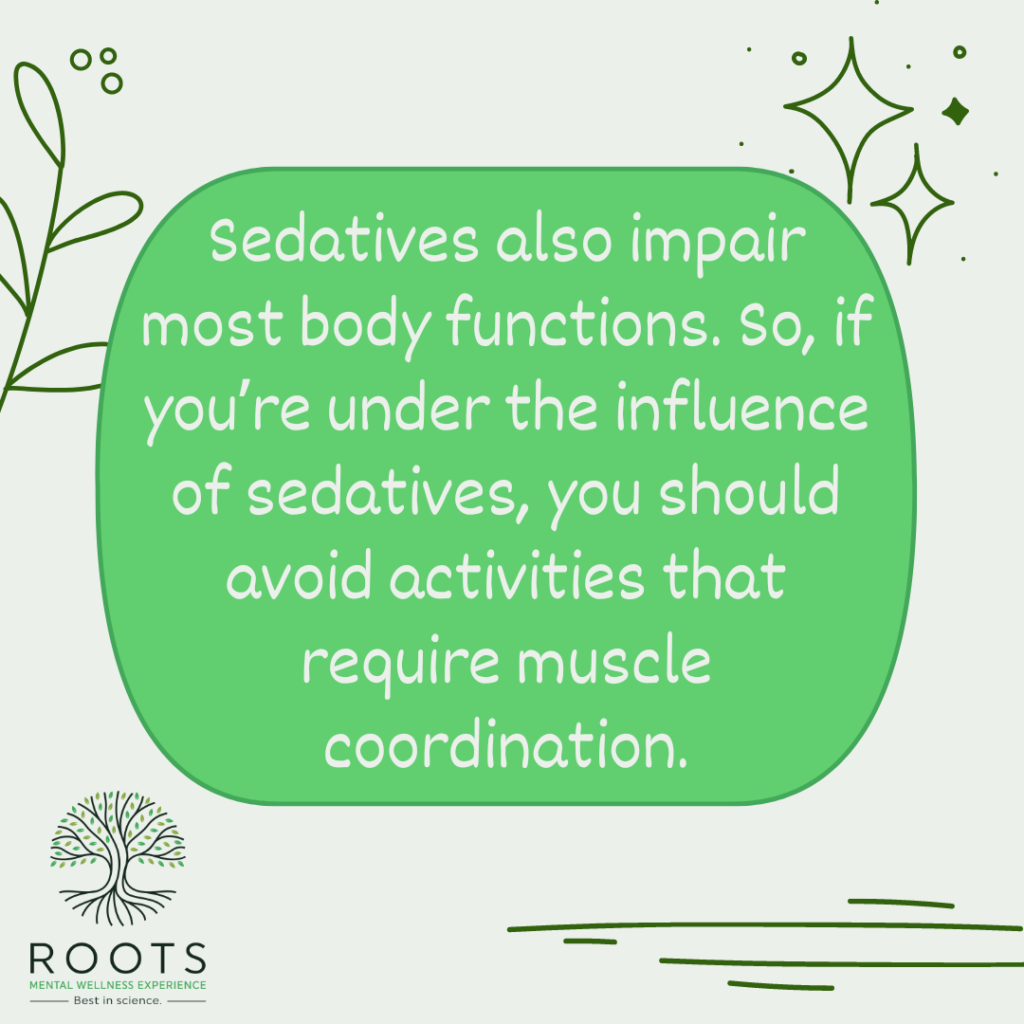For decades, substance abuse and addiction have been big problems in society. One of the most significant reasons it continues to plague lives is the abundance and variety of substances available.
Some types of addiction stem from recreational drugs. People use them to get euphoric effects and get hooked on that feeling.
Other substance use disorders come from medications. Users might “discover the great effects” of these drugs and use them for pleasure. Sometimes, patients become addicted because they develop a tolerance.
With all these substances around, it’s important to understand what they are and what they can do. That way, you can see if anyone you know– or maybe identify with yourself– has turned to using and abusing them. Then, you can start helping them recover.
In this article, we’ll focus on sedatives and sedative addiction, looking at the types of the drug, its effects, and signs of an overdose.
What Are Sedatives?
Sedatives, also known as depressants, are a group of prescription drugs that affect your central nervous system and slow down brain activity. People typically take them to make them feel more relaxed.
As a medication, doctors commonly prescribe these to treat conditions such as sleep disorders and anxiety.
Sedatives are controlled substances, meaning their production and sales are regulated. Unfortunately, this classification of drugs is highly addictive, causing sedative drug abuse partly because it’s heavily regulated. People become dependent on them beyond their control.
What Are The Types Of Sedatives?
- Barbiturates
Barbiturates are medications that doctors prescribe to treat anxiety, sleep disorders, and tension. They can also prevent or stop seizures and convulsions. Commonly, they are used for anesthesia purposes, epilepsy treatment, and nonepileptic seizure treatment.
Once considered a safe depressant, barbiturates quickly became a problem when people misused and abused them, leading to addiction and overdose.
Although used to treat certain disorders, it can bring a sense of relaxation and euphoria, making that one of the reasons people misuse and abuse it.

- Benzodiazepines
Professionals developed and popularized benzodiazepines– “benzos” for short– as a response to the high abuse rates of barbiturates.
Benzos are highly effective in treating anxiety and insomnia, owing to their muscle-relaxing and sleep-inducing features.
It’s a less addictive drug compared to barbiturates, which means it’s less likely to cause an overdose. However, like many drugs, they still carry the risk of addiction. They’re safe for short-term treatment. But the longer people use them, the more they’re likely to develop a tolerance that leads to sedative abuse.
- Hypnotics
Hypnotics are targeted toward treating sleep disorders– inducing it, extending it, improving its quality, or reducing wakefulness during sleep.
Many people rely on this type of drug to sleep. They become dependent on it, thinking they can’t sleep without taking these. That can lead to a sleeping pill addiction.
- Opioids
Opioids are a class of pain-relieving drugs that interact with opioid receptors in your cells. This medication travels through your blood, attaches itself to your brain cells, and makes these cells send signals that muffle your perception of pain and boost feelings of pleasure.
This drug is one of the strongest and most effective treatments for pain. But they’re also highly addictive.
Following your physician’s directions makes you less likely to develop an opioid addiction. But over time, you may build a tolerance to the drug. So, you increase your dosage and take it more frequently. That can lead to addiction to opioids.
What Are The Effects Of Sedatives?
There are different kinds of sedatives with varying effects. But generally, they cause physical depression, muscular relaxation, and sedation. In other words, they make you feel relaxed and sleepy and reduce anxiety.
Sedatives also impair most body functions. So, if you’re under the influence of sedatives, you should avoid activities that require muscle coordination.
Other sedative effects include:
- Reduced intensity of physical sensations
- Lowered inhibitions
- Slurred speech
- Lightheadedness
- Shallowed breathing
- Slowed heart rate
- Reduced dexterity
It also has more serious side effects, especially if you misuse and abuse it.
- Respiratory problems
- Confusion and disorientation
- Memory problems
- Depression

What Are The Signs Of Sedative Addiction?
When it comes to addiction, there are general behavioral, social, and psychological signs.
- Isolating yourself from loved ones.
- Neglecting responsibilities
- Financial issues
- Poor personal hygiene
- Always thinking about the drug: when you can take it again and where you can get some
- Stashing it in odd places
Sedative Withdrawal Symptoms
Another way to tell if you, or anyone you know, is addicted to sedatives is through withdrawal symptoms. Your body got so used to having the drug in its system that a significant amount of time without it can make your body reacts negatively. This experience can be uncomfortable and, at times, dangerous.
Withdrawal symptoms include:
- Tremors or shaking muscles
- Excessive sweating
- Restlessness
- Insomnia
- Nausea
- Vomiting
- Depression
- Anxiety

What Are The Sedatives Overdose Symptoms?
In severe sedative addiction, an overdose may occur– taking a dangerous amount of a drug resulting in harmful symptoms and even death.
Symptoms of overdose look similar to that of addiction and withdrawal. So, if you or see anyone experience any of these signs, it’s best to get professional help.
- Slurred speech
- Vomiting
- Unsteadiness
- Difficulty breathing
- Slowed heartbeat
- Unable to think or respond properly
- Cold skin
- Bluish tinge on skin, fingers, and lips
- Shock
- Dizziness
- Fainting spells
- Unconsiousness
- Coma
Sedatives are highly beneficial medications that help people treat symptoms of certain conditions, like anxiety and insomnia. However, misuse and abuse of this type of drug can lead to sedative addiction. But that doesn’t have to be the end of the road. If you know what to look for– symptoms of addiction, withdrawal, and overdose– you can get help.
Are you looking for therapy programs in California? Choose Roots Through Recovery. You can schedule an appointment and visit us at 3939 Atlantic Ave Suite 102, Long Beach, CA 90807, United States. You may also contact us at 562-352-2035, email us through info@roots-recovery.com, or go to our website.




